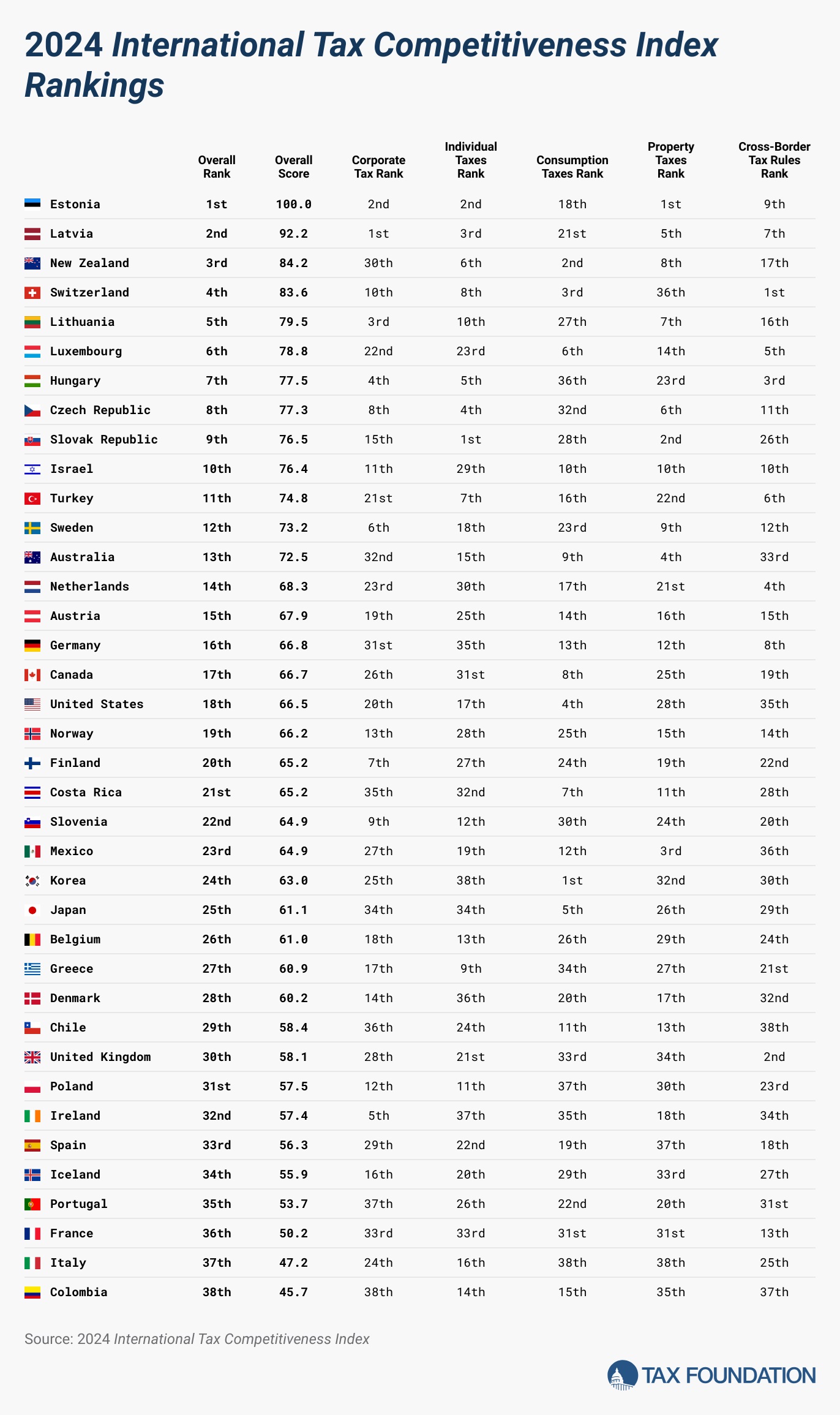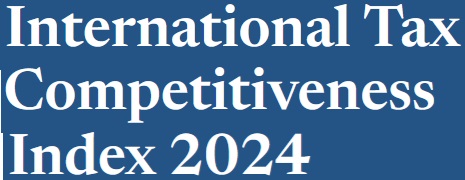October 22, 2024 by Dan Mitchell @ International Liberty
Over the years, I have heaped praise on the Baltic nations, especially Estonia, for having comparatively sound economic policies.
The latest piece of evidence is the Tax Foundation’s 2024 edition of the International Tax Competitiveness Index, which measures the attractiveness (or lack thereof) of tax policy in OECD member states.
All three Baltic nations receive high scores, with Estonia at the top (for the 11th year in a row), Latvia in second place (for the 5th year in a row), and Lithuania jumping four spots to claim fifth place.
Here are the complete ratings (click to enlarge).
American readers will be happy to see that the United States is now in the top half of the rankings, rising from 21st place last year to 18th place this year.
Though the really big increase took place after the 2017 Tax Cuts and Jobs Act (the U.S. used to rank near the bottom).
If you look at the different factors, the U.S. scores very high on consumption taxes, largely thanks to not having a value-added tax. By contrast, America gets very low ratings for cross-border tax rules (click here for more on that boring but important topic).
Here are some additional details from the Tax Foundation.
The International Tax Competitiveness Index (ITCI) seeks to measure the extent to which a country’s tax system adheres to two important aspects of tax policy: competitiveness and neutrality. …the ITCI looks at more than 40 tax policy variables. These variables measure not only the level of tax rates, but also how taxes are structured. The Index looks at a country’s corporate taxes, individual income taxes, consumption taxes, property taxes, and the treatment of profits earned overseas. …For the 11th year in a row, Estonia has the best tax code in the OECD. …Latvia, which recently adopted the Estonian system for corporate taxation, also has a relatively efficient system for taxing labor income.
New Zealand has a relatively flat, low-rate individual income tax that also largely exempts capital gains (with a combined top rate of 39 percent), a broad-based VAT, and levies no taxes on inheritance, property transfers, assets, or financial transactions. Switzerland has a relatively low corporate tax rate (19.7 percent), a low, broad-based consumption tax, and an individual income tax that partially exempts capital gains from taxation. …The five countries at the bottom of the rankings all have higher-than-average combined corporate tax rates. Ireland ranks poorly on the ITCI despite its low corporate tax rate. This is due to high personal income and dividend taxes and a relatively narrow VAT base.
The worst country (again) is Colombia. And France (again) is next to last, while Italy (again) is next to next to last.
P.S. I wish the Tax Foundation would add a few non-OECD nations to their ranking. I assume places such as the Cayman Islands and Singapore would come out on top.


No comments:
Post a Comment